2019-2020 Professors for the Future Fellows
Beyond the Ivory Tower: Engaging the Public in the Social Sciences
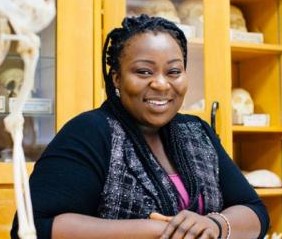
Mayowa Adegboyega
(Ph.D. Candidate, Anthropology)
Effective communication and public engagement are becoming increasingly important skills in academia, yet these remain areas that is often neglected in graduate student training. In the current climate of rapidly proliferated misinformation and the wavering support for publicly funded institutions, it is critical that as future professionals, graduate students are furnished with the tools to cut through the noise and reach the general public where they are. Support for science communication in STEM fields has risen in recent years yet the Social Sciences lag behind in these areas. To address this issue, I designed a three-part workshop series to help graduate students learn about how to effectively engage the public in their research.
The three sessions of the workshop which were each help one week apart were titled 1) Accessibility, 2) Outreach Plan, and 3) Resources respectively. Each session started off with a discussion and was followed by an activity that participants did in groups of four or five.
Accessibility: Students learned about how to make their research more accessible to different demographics such as young children, amateur enthusiasts, or a general social media audience. In the first half of the session, we talked about how to construct an effective “elevator pitch” and how to regulate the use of jargon. We also went over the importance of changing one’s pitch to suit one’s audience. In the second half, students broke off into groups to help each other develop their elevator pitches for a demographic the group was assigned after which they presented their pitches to the whole room.
Outreach Plan: We examined how to develop and design outreach projects. We discussed important factors such as the target audience, time constraints and communication goals after which participants were walked through a Logic model and a Communication plan template. Students were encouraged to use the information from the previous session to help develop their Outreach communication plans and they were encouraged to work together outside of the workshop session in their groups to help each other flesh out their projects.
Resources: Participants wear given information about available resources within and outside the University such as internal and external funding sources, and campus staff and offices that create campus media. We also discussed how to be effective communicators on social media. Afterwards participants were given time to finish up their communication plans and the opportunity to share their work with the entire room who were encouraged to give feedback.
Reviewing the feedback from these sessions, all participants stated that they would recommend the workshop to their peers and attend again for different topics. Students suggested that a panel of experts would be a great way to get information from various people in their particular fields who do public engagement. Since this was offered online, many students noted that an extended workshop with more topics might be better suited to this format, but other students mentioned that outside of these particular circumstances, students are more likely to miss online events since there are fewer incentives. All in all, the students enjoyed the workshops and looked forward to helping each other with develop their ideas outside in the future.
To view the final poster for this project, please click here.
An Interdisciplinary Introduction to Team Science
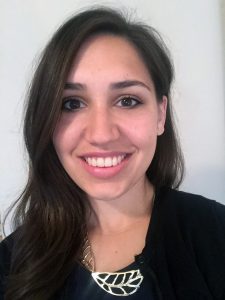 Samantha Blair
Samantha Blair
(Postdoctoral Scholar, Psychiatry and Behavioral Sciences)
This project, An Interdisciplinary Introduction to Team Science, sought to provide an overview of team science principles, facilitate networking of trainees across varying disciplines, and encourage the use of team science for students, postdocs, researchers, and faculty. Researchers at the University of California, Davis are pursuing training and research at the forefront of their fields in order to contribute knowledge and promote positive change in the world. As these fields advance, it is imperative that professionals are able to work together to solve complex problems in a collaborative way. Team science, a term first introduced at a conference for the National Cancer Institute, refers to “collaborative effort to address a scientific challenge that leverages the strengths and expertise of professionals trained in different fields.” This cross-disciplinary approach to science brings together those who are experts and active in their fields to increase efficiency and effectiveness in scientific endeavors and translating these findings to policies and practice. Therefore, it is important that graduate students and postdoctoral scholars receive training and experience in the principles of team science in order to ensure they are prepared to effectively collaborate with individuals from other disciplines as they become involved in more complex initiatives in their careers.
This project was conducted in collaboration with the UC Davis Health Clinical and Translational Science Center (CTSC). It consisted of one half-day workshop held on the Davis campus in January 2020. Trainees from all fields were invited to further encourage cross-disciplinary collaboration. The workshop included an introduction led by Dr. Raymond Rodriquez, a team science specialist, that provided an overview of team science, why it is important, how to implement it, and how to overcome potential challenges. Next, a panel discussion was held to allow for discussion of varying perspectives of team science. Panelists included Lauren Bloom from the Ombud’s office, Dr. Clare Cannon from the Department of Human Ecology, and Dr. Sarah Messbauer and Dr. Aury Washbrun from the Interdisciplinary Research Support unit at the Office of Research. Lastly, Lauren Bloom facilitated a group discussion focused on managing conflict in science teams.
By participating in this introductory program to team science, participants were able to gain information about team science principles and how to incorporate these components into their current and future work. At the completion of the project, participants became more prepared to effectively collaborate with experts from different backgrounds, have skills to proactively incorporate team science into their work, and be able to demonstrate how to use these skills in future projects.
To view the final poster for this project, please click here.
I Get By With a Little Help From My Friends: Developing Peer to Peer Mentorship Activities
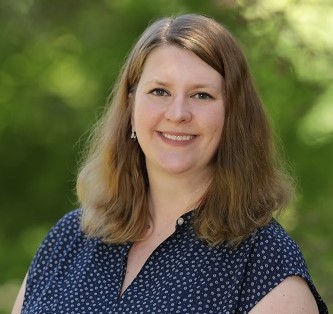
Gwen Chodur
(Ph.D. Candidate, Nutritional Biology)
Access to adequate and appropriate mentorship may be a struggle for graduate students. However, mentorship may come from multiple sources beyond a Major Professor. Peer to peer mentorship is an important resource to graduate students, as newer students can benefit from the experience of older students, who also have the opportunity to develop their own mentorship skills. While there are benefits to peer to peer mentorship, there is little uniformity in how these programs are run.
For the first part of my project, I surveyed existing peer to peer mentorship programs on campus. Survey was written based on informal interviews with graduate students who participated in peer mentoring and pilot tested by 9 individuals for cognitive validity. The survey queried respondents about how peer to peer mentorship activities were planned, the scope of activities undertaken, and their ratings of how well the peer mentorship activities satisfied outcomes. The survey was distributed through targeted outreach and received 68 responses from 46 unique graduate groups or departments across campus.
I held a workshop in Spring Quarter 2020 to assist student leaders in developing or improving peer to peer mentorship within their own programs. I presented data gathered from the survey and brainstormed with attendees about how to address common challenges faced in peer to peer mentorship.
Of those surveyed, the mostly commonly undertaken peer to peer mentorship activities included informal social events (78%) and matching first years to upper year students (55%). Having a student elected to coordinate peer to peer mentorship was associated with having 1.9 more activities (p=0.002). The more activities a program organizes, the more satisfied respondents were. Each additional activity raised satisfaction by 0.81 points (p<0.001). Number of activities explained ~40% of the variability in satisfaction. The most frequently cited challenges associated with peer to peer mentorship were: lack of participation from advanced students (51%); difficulty in developing programming or activities (47%); and difficulty sustaining leadership (47%). To address these challenges, participants suggested incentivizing participation; performing needs assessments of what students feel they need; and to include leadership seminars and workshops as part of the mentorship activities to help build a leadership pipeline.
To view the final poster for this project, please click here.
Lessons from Rejections: A Three-Part Podcast Series
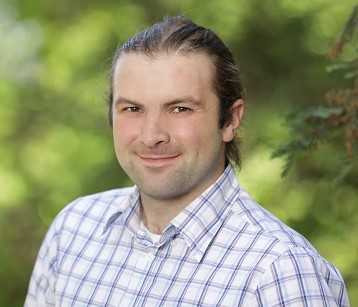
Kyle Fletcher
(Postdoctoral Scholar, Genome Center)
Graduate students and early career researchers face a competitive environment that can often lead to feelings of anxiety, isolation and impostorism. A portion of this is due to critical feedback one receives from their peers, be it anonymous or direct, through mediums such as peer review, presentation Q&A, and face to face meetings. Negative feedback is often handled privately, possibly internalized, and deprived of the perspective that can be gained from discussion with peers. In addition, from the outside, it is not always clear what the impacts of negative feedback have on work produced in academia; that original hypotheses postulated were removed from an article after peer-review or that a project was not chosen for funding by an agency.
This Professors for the Future project aimed to obtain insight from current UC Davis faculty with regards to how negative feedback has shaped and continues to shape their careers. Through interviews, we discussed three common forms of rejection encountered during the career of an academic: job applications, manuscript submissions, and grant applications. Additional topics discussed across the series include: imposter syndrome, how it is fueled by rejection and overcoming it; mentorship and it’s importance at every level; strategies and advice for accepting negative feedback; advice for giving feedback, in particular written peer review.
Interviews with three faculty were conducted over Zoom and edited into ten to twenty-minute podcasts. Podcasts can be downloaded or played here. They are also available on the GradPathways YouTube channel.
To view the final poster for this project, please click here.
A Guide to IRB Review for Humanities and Social Science Researchers
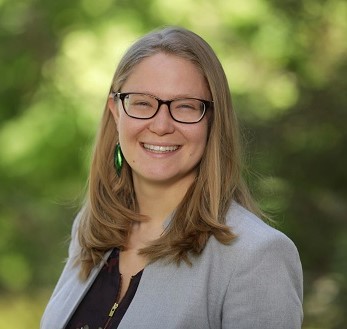
Gillian Irwin
(Ph.D. Candidate, Music)
When developing my proposal for dissertation fieldwork, I found myself not only overwhelmed with the task of creating an important and manageable project, but also with ensuring that my project would be approved by the Institutional Review Board. I found this process difficult and confusing, as much of the language of the IRB is better formulated for projects in the sciences and I wasn’t sure how it applied to the extremely flexible and unquantifiable nature of qualitative ethnographic research.
In my PFTF project, I sought to address ethnographic researchers’ need for targeted IRB assistance. In addition to collecting information from other universities’ IRB webpages and other online resources, I conducted a survey soliciting responses on questions about UC Davis graduate student and post-doctoral scholar experience working with the IRB. I received forty-five responses from scholars in twenty different departments, and found that of the respondents, seventy-five percent found the IRB process “slightly,” “moderately,” or “extremely” difficult, and fifty-two percent said that they “do not receive much support” from their departments when submitting protocol. Respondents asked for an IRB template specifically for social science/ethnographic research and for differentiated procedures to be described clearly on the website. Many respondents asked for example language and information about phrasing to be made available.
In response to these concerns, I worked with Nicole Walters at the UC Davis IRB to share the results of my survey and provide information for the IRB to better serve ethnographic researchers and researchers in the social sciences. I also drafted a Frequently Asked Questions answer page addressing the concerns expressed by survey participants and providing links to outside resources, which will be reviewed by IRB staff for future inclusion on the UC Davis IRB website.
To view the final poster for this project, please click here.
There's An App For That! Using Digital Tools to Build Community and Ease Academic Workflow
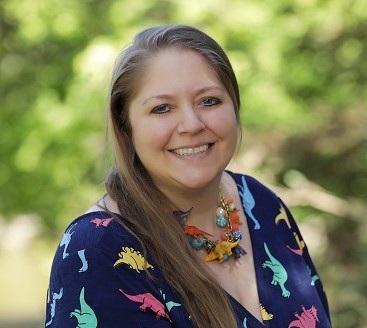
Meghan Klasic
(Ph.D. Candidate, Geography)
As graduate students and postdocs we find ourselves constantly seeking information and advice on how to find the best resources and tools to make our research lives easier. The digital world provides an amazing opportunity to gain access to tools, data, and information, that we may otherwise never find (or that would take time and effort, adding to an already overloaded schedule). However, not all “apps” are created equal and rarely are they created with graduate students or postdocs in mind. When we are trying to squeeze every productive second out of a day, the thought of exploring hundreds of apps, learning how to use them, and evaluating which can be used to our greatest advantage, is overwhelming. Our time is too valuable to waste on apps that do not contribute to our success.
My project consisted of two foci: 1) finding and building your online community and 2) identifying apps to ease academic workflow. To address these topics, I held a virtual workshop and created a resource website and monthly newsletter. The workshop, attended by 40 people, began with hands-on training on how to build your presence and find your community on Twitter. The workshop then featured a panel of experts discussing how and why they built an online community. Panelists included: Bernie Bastien, PhD Student at UC Davis and Co-Founder of Planteando; Dr. Raul Pacheco-Vega, Assistant Professor at Centro público de investigación y educación in Mexico and the Founder of #ScholarSunday; Dr. Sarah McAnulty, Founder and Executive Director of Skype A Scientist; and Dr. Michele Tobias, Data Specialist and Leader of #GISchat.
The recording of the workshop was posted on UC Davis’ Grad Pathways Institute YouTube channel (currently 34 views). Since the workshop, I have been asked to conduct Twitter trainings for two research labs. I also created an online resource page (klasicH2O.com/pftfproject) that provides students with tips, trainings, reviews, and advice on both finding and building your online community and more generally, easing your academic workflow. Feedback for initial apps and tools to review for the “easing academic workflow” piece was solicited from the workshop attendees and are currently in progress. Beginning in June 2020 through June 2021, I will distribute a monthly newsletter that provides highlighted tools and tips as well as an “app of the month” that is tested and supported by graduate students and postdocs. There are currently 65 newsletter subscribers.
To view the final poster for this project, please click here.
Lights, Camera, Science: A Television Media Training Workshop
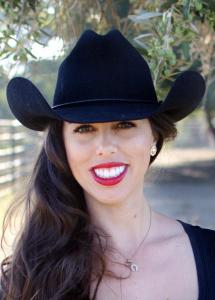
Sarah Klopatek
(Ph.D. Candidate, Animal Biology)
Gene-editing, immigration policy, and climate change are just a few areas of research studied at UC Davis that have been deemed as controversial. Not only are these subjects controversial, but they continue to garner media attention. With graduate students being thrown into the media spotlight unlike ever before, media training has become essential for many of our students. In order to improve graduate student media communications, a 2-day media training workshop was developed in collaboration with the Strategic Communications Department. On day one of the workshop students began with a cold open interview in which on camera reporters asked the participants specific questions regarding their research. From there, students learned how to get a head of their message and practiced interview strategies such as blocking and bridging. Students were then able to review their cold open interviews with media experts and practiced honing their research narrative. On day two, students were interviewed on camera for a second time. By the second interview, all the students had made great improvements. Furthermore, after completing the media training participants reported increased confidence in discussing their research in public venues and on camera.
This was a thoroughly exciting workshop and it is hoped that these types of workshops will be offered to graduate students in the future. For it is through the media that our young scientists will be able to positively engage the public, impact policy, and ultimately ensure the sanctity of research.
To view the final poster for this project, please click here.
The HUM Portal: Leveling the Playing Field for Graduate Student Success
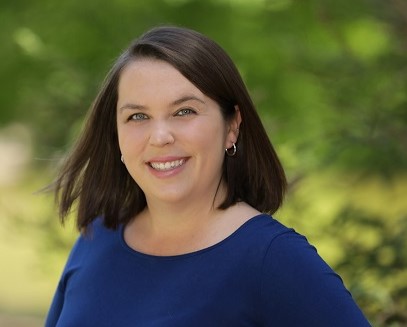 Jessica Krzeminski
Jessica Krzeminski
(Ph.D. Candidate, English)
For this project I partnered with the UC Davis Humanities Institute (DHI) to create a webpage specifically for humanities graduate students to navigate the myriad of resources offered by UC Davis. My goal was to level the playing field by making it easier for students—especially first-generation students, women, and other historically underrepresented groups—to locate resources that will help them live and learn well. The DHI website is uniquely poised to become the humanities portal with existing pages containing links to funding, interesting articles and events targeting humanities graduate students and faculty, and information about career development. I therefore desired to specifically help a) flesh out the funding page and b) create a new landing page for graduate student resources.
To this end, I conducted a survey to poll graduate students across disciplines and this survey confirmed what I gleaned from conversations with my colleagues: most humanities graduate students find dissertation, travel, and summer funding through department emails and word of mouth. Most are unaware of the many resources UCD offers, from the food pantry to Pivot, to the yearlong internal fellowship competition through Graduate Studies and which fellowships humanities students are eligible. I also discovered that humanities graduate students want access to information about summer funding and summer institute and research opportunities and are extremely eager to read articles and blogs from current graduate students and recent graduates on the job markets (academic, alt-ac, and industry).
Based on this information, I proposed to the DHI that we create a webpage focused on three pillars for graduate student success: Funding, Career Resources, and Graduate Student Wellness. Using Weebly, a website builder, I drafted The Hum Portal. The DHI will build the page this year. The Weebly page I built is a proof-of-concept and a live page for the many various resources, internal and external, that I collected this year. Per my conversations with Stephanie Maroney and Kathy Wallerstein, I also included in The Hum Portal Weebly an example tab for a DHI blog that will feature humanities graduate student bloggers writing about graduate life and rights, as well as an example “contact us” page for graduate students to submit articles, book reviews, and other academic writing pieces. I hope to see this page live on the DHI website soon, and am happy to have started the conversation and collected the resources.
To view the final poster for this project, please click here.
Student Engagement in Higher Education: Bridging the Gap Between Academic Affairs and Academic Professionalism
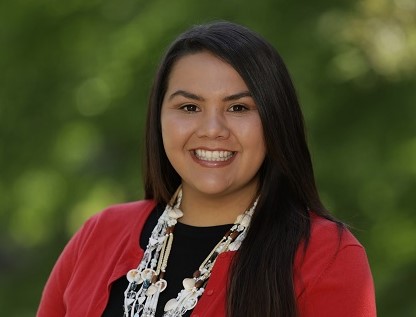
Deserea Langley
(Ph.D. Candidate, Native American Studies)
Planning my project was a rewarding experience. Initially, I hoped to hold a workshop series lead by three women in higher ed: Dr. Melissa Leal Professor of Social Science at Sierra College; Dr. Cutcha Risling Baldy, Chair of Native American Studies at California State University, Humboldt; Dr. Beth Rose Middleton, Chair of Native American Studies at UC Davis. I wanted them to share their work as Native American and allied scholars to inspire future community engaged scholars. Their experiences would highlight how they have formed partnerships and collaborations with the communities in which they conduct their research.
Secondly, I would encourage participants to ask questions and discuss how they manage public scholarship, community engagement, and university responsibilities. The workshop would cover key topics that are imperative to becoming a successful community engaged scholar. This opportunity would increase the ability of graduate students to negotiate space on the campus that bridges mentorship, community service and academic teaching. Additionally, it would increase graduate students’ ability to create networks across campus that encourage graduate student growth and academic professionalism.
The transition to online learning was difficult, but I do believe that my event was successful. I hosted two events online with Dr. Melissa Leal and Dr. Cutcha Rilsing-Baldy. I decided to focus on two speakers because it simply easier to manage. Dr. Leal and Dr. Risling Baldy provided insight on their careers as community engaged scholars. Throughout the talk, audience engagement was encouraged. Questions from attendees included personal reflection question, creating research questions with the community, major challenges they have faced, bridging the gap between community and scholarship, knowledge generation, reciprocity in academia, and personal growth.
Insight in conducting community engaged scholarship should be considered a necessity for research in academia. Our research has real world implications that are often overlooked. Dr. Leal and Dr. Baldy’s experience working in Native communities is inspiring to Native and allied researchers who wish to conduct research that strengthens community. Overall, the goals of my workshop did not change because of the online format and I feel that I did accomplish both goals I set out. If I were to hold this type of workshop in the future, I would do more work prior to the event, such as gathering questions from possible attendees. I am happy that I was able to offer this workshop, not only to Native/Indigenous researchers, but researchers who are interested in working and partnering with underrepresented communities.
To view the final poster for this project, please click here.
How to Explain Your Research to the Public: Informal Science Communication.
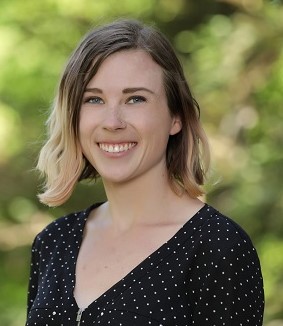
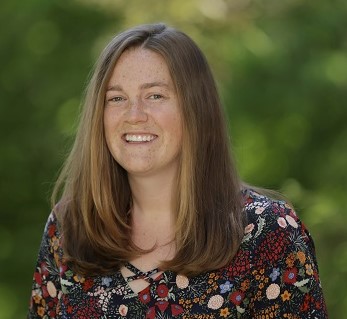
Nichole Lewis (left)
(Ph.D. Candidate, Biochemistry,
Molecular, Cellular and
Developmental Biology (BMCDB))
Rebecca Schomer (right)
(Postdoctoral Scholar,
Microbiology and
Molecular Genetics)
Graduate education and training focus a significant amount on how to formally communicate our work to other experts. Knowing how to communicate with a lay audience is just as important as knowing how to communicate with fellow scientists who are not experts in one’s own field. However, there usually is little to no training dedicated to these informal skills. To that end, our workshop aimed to provide graduate students and postdoctoral scholars with the tools and resources to confidently and effectively inform the general public about scientific ideas and facts.
Using an online format, we developed a discussion-based workshop called “How to Explain Your Research to the Public: Informal Science Communication.” We primarily used activities from the Portal to the Public, Implementation Manual, Pacific Science Center and Institute for Learning Innovation (2018), to introduce and practice navigating the challenges of science communication. Topics that were covered included the expert blind spot; identifying and understanding the perspective of the audience; focusing on critical aspects of a research topic that are most important for understanding; and identifying jargon words and how to introduce or substitute those words. In break-out rooms and in whole-group discussions, we explored how to utilize hands-on activities for outreach events, and brainstormed metaphors and analogies that can be used to describe different scientific concepts. The workshop concluded with a select number of participants practicing their elevator talk for the group, utilizing what they had learned from the workshop and gaining additional group feedback.
Participants were provided with a list of outreach programs to participate in and continue to build their communication skills. To adapt to current limitations, we updated the list prior to the workshop to include online organizations that those who were eager to practice and build their communication skills could do so sooner rather than later. Based on attendees’ feedback, there was a consensus for more workshops designed around informal science communication. If such a workshop is held, several attendees expressed interest in additional instruction with specific examples of successful science communication.
We hope that the positive feedback and expressed desire for more communications workshops will lead future fellows to build off of what we have done here. Overall the project was well-received, despite the challenges of modifying the event to an online format in a short amount of time.
To view the final poster for this project, please click here.
Pretty Pictures! The Importance of Visually Stunning Images in Research.
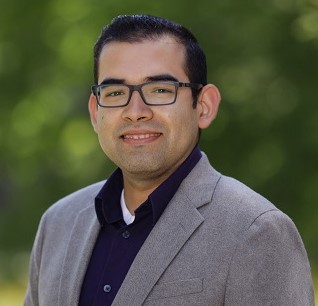
Carlos Ruvalcaba
(Ph.D. Candidate, Mechanical and Aerospace Engineering)
Research communication has multiple levels: an expert communicating to a general public audience, a researcher giving a presentation to diverse subject-matter experts, or weekly meetings between a late-stage PhD student and their advisor. In all cases, students usually are taught to show all the information relevant to their message, and let the audience determine the quality and relevance of the information presented. However, as information becomes more specialized, and communication spans expert to general public audiences, effective use of time to convey a message is necessary.
For the graduate student and/or postdoctoral scholar population, there is a multitude of time spent generating data, but little time is spent making sure that the data is conveyed with meaningful graphics. Meaningful graphics can aid in conveying a message that is quite complex in writing, but much more insightful with visual help. Some universities hire content creators on a departmental basis to aid researchers in preparation of visual graphics. Graduate students and postdoctoral scholars are expected to learn how to use many of these tools in specialized courses or online tutorials in their own time. These graphics tools can be daunting to the a new user, and many “tricks and tips” are better shown with interactive sessions.
The purpose of this project is to demonstrate how conveying complex subject specific information can be aided with the use of meaningful graphics. Additionally, participants will be introduced to several free and paid subscription tools that aid in the development of quality graphics.
To view the final poster for this project, please click here.
"I Thought I Knew How to Write" – Overcoming Writing Anxiety and Advancing in Academic Composition.
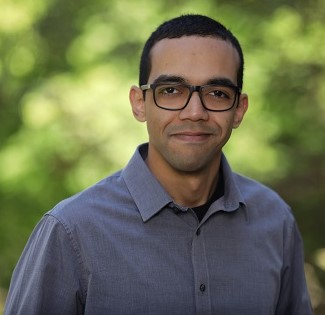 Leonardo Silva
Leonardo Silva
(Ph.D. Candidate, Spanish)
The idea for this project came from conversations with other graduate students and how most of them seemed to struggle with this frequently lamented question: “How is your dissertation going?” I wanted to investigate why academic writing became such a challenge to these professionals who, at this stage of their career, where already experienced with this type of academic and professional writing.
In Fall 2019, I organized a bibliography on writing anxiety. From this task, I found out that the term “writing anxiety” is still missing from the academic lexicon, although many academics seem to experience, or have experienced, writing anxiety before. I also searched for a manner of giving effective advice rather than just defining the term. My conversations with former PFTF fellow Sarah Reed helped me build upon her project and quickly tackle some of the difficulties she faced, such as dealing with the psychological aspect of anxiety.
By Spring 2020, I had developed a workshop to address this writing anxiety based on the research that I conducted in the Fall and Winter. I contacted the presenters for the workshops with suggestions of topics to be covered by each of them, based on the one-on-one conversations we had previously had. The event on the psychological aspect of writing anxiety was incorporated by the GradPathways Institute, which offered one more session with the guest speaker. The second session was recorded and will be made available in the GradPathways Institute YouTube channel. I was thrilled by the stunning number of attendees that filled all 200 spots for both my workshops in less than 24 hours. This response demonstrated the relevance of my project and is an indicator of how present (and often overlooked) writing anxiety is for graduate students and postdocs.
Overall, this was a successful event and a valuable experience for me and my fellow graduate students. Through every stage of this process I was able to learn how to deal with some of the challenges in creating a multi-departmental project and offer something in return to the graduate student community. This was a strong first step toward adding writing anxiety to my academic practice and I intend to keep developing this project and hopefully offer similar workshops in the future.
To view the final poster for this project, please click here.
Beyond the Podium: Getting the Most Out of Academic Conferences
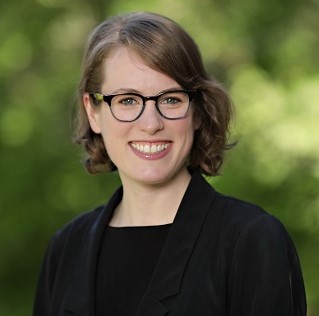
Charlotte Vorwald
(Ph.D. Candidate, Biomedical Engineering)
Academic conferences are exciting venues for scholars to highlight their own research, share lab accomplishments, and network with academic peers and potential collaborators. For graduate students and postdocs alike, attending such conferences can be intimidating. Many require travel to new places, filled with unfamiliar faces and research backgrounds. While students have extensive training to learn techniques directly related to their research, many are not fully equipped to develop their professional skills for academic conferences. There is a current unmet need to provide the tools and resources to increase confidence in attending external, academic events. With preparation and an open mindset, students can make valuable connections and foster meaningful conversations among peers.
I aimed to provide a setting where graduate students and postdocs can understand, prepare, and exhibit best practices for research conferences. For my PFTF project, I developed and organized a two-part seminar series designed to increase confidence and engagement in academic conference settings. Each seminar focused on how to prepare before and during conferences, respectively. The first seminar outlined the general process for organizing conference logistics, funding, and aligning presentation types to professional development goals. The second seminar focused on maximizing networking during conference attendance, featuring a panel of experienced academic leaders in this subject.
This project not only provided an outlined strategy for academics to reference, but these sessions also revealed main concerns posed by the participants themselves. Networking is a central part of conference attendance, and this seminar highlighted the need for support in reframing networking mindsets to maximize connection in these settings. Future work will further emphasize key components discussed on networking at conferences and highlight nuances between academic levels.
To view the final poster for this project, please click here.
